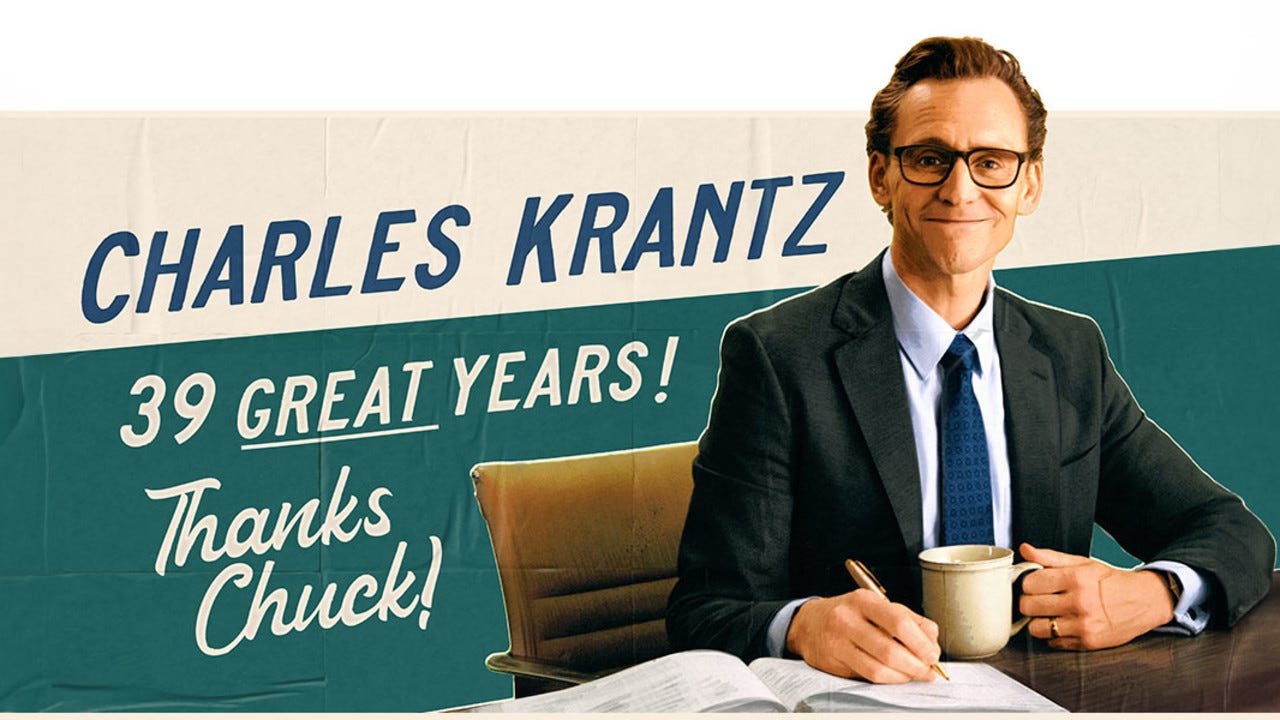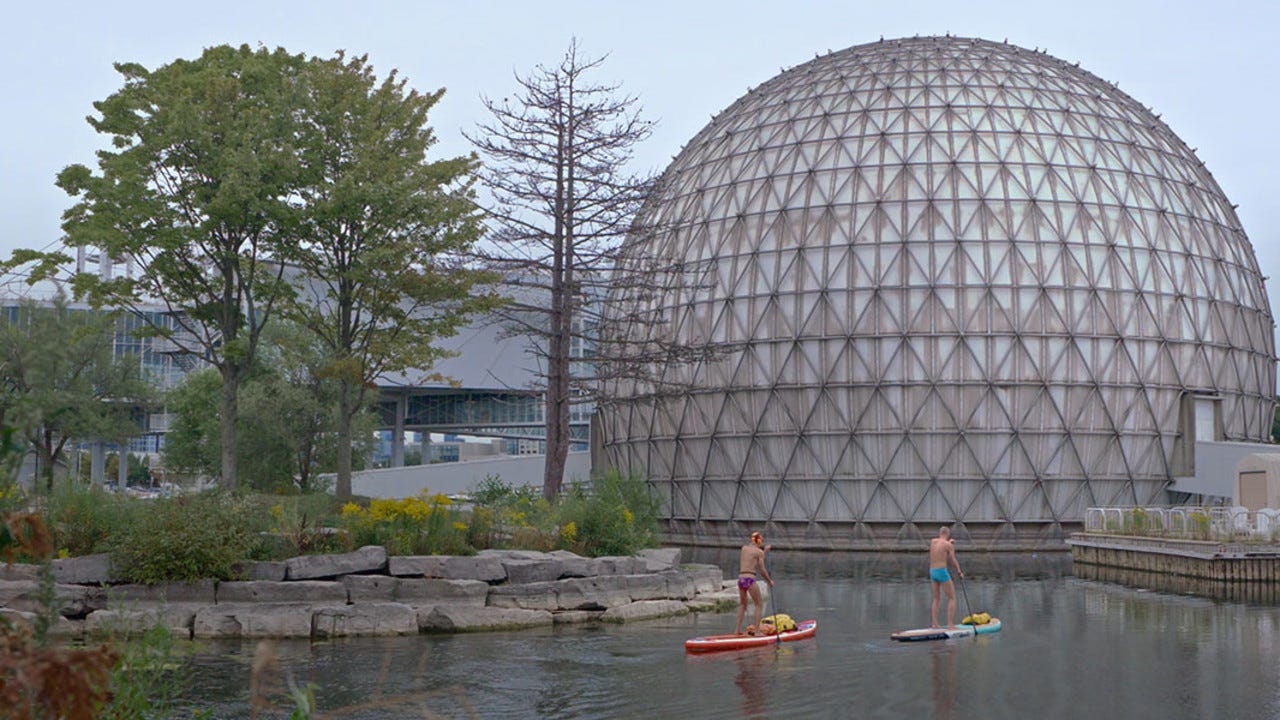TIFF '24 Day Ten
A few words about shedding tears
It’s very nearly over. Even this morning, writing this, as I stare at possible selections for the final day of TIFF ‘24, I’m considering skipping it all and calling it a day. The exhaustion has really taken hold, and anyway I’ve got work on my plate that needs finishing. We’ll see. What’s always interesting to me about the second weekend of the festival is seeing the contrast between people like me, who do the whole damn thing, and the regular members of the public who haven’t been watching movies all week. There’s almost a life drained from a lot of the moviegoers, while others still have a pep in their step, just happy to be seeing an interesting movie (or not) on the weekend.
I saw four films on the tenth day. The first was a press screening of The Shadow Strays, the bone-crunching new action film from Indonesian director Timo Tjahjanto. I did not care for it. Or more accurately, I did not care about it. The film played as the closing night of Midnight Madness, and I have to a ssume it was a wild screening, the audience reacting to all the incredible ultra-violence in the film. We even got some of that in our press screening. I understand where that’s coming from. The action sequences—and there are many of them—are undeniable. Constructed within an inch of their life for high speed and high gore. They are extremely well done. But that only carries me so far. At some point in this 140-minute movie about modern ninja assassins, it all just becomes a wash of meaningless brutality. Even with some welcome bursts of fun originality in the action, I just wanted it to be over.
Paul Schrader was back at the festival with his new film Oh, Canada, his reunion with Richard Gere more than four decades after American Gigolo. The movie is about a celebrated documentary filmmaker doing sitting down for an interview for a film about his life while sick with cancer and close to death. His mind not quite what it was, he tells the best he can the story of his early years, before he dodged the draft and became a Montreal resident. His memories aren’t entirely reliable, and stories sort of bleed into one another. His younger self is played by Jacob Elordi, who’s very good, but sometimes Gere himself appears in those scenes, as though the old man is placing himself in his own memories. Those reminiscences hold so much pain and regret, at unfortunate circumstances and decisions made. At one point, speaking to one of his young interviewers, Gere’s character explains by 24 he’d lived a full life, with marriages, and a kid, and divorce, and that in a certain sense his life actually ended then. Canada, his place of refuge, not so much from the war, but from life itself, has all along been a purgatory. Quite unlike some of Schrader’s other recent films, Oh, Canada is soft-toned and so warm. It’s not that it’s an easy film, but he’s made something genuinely elegaic. It’s a beautiful, beautiful movie.
One film about mortality was apparently not enough for me, so I went to see Mike Flanagan’s The Life of Chuck, based on a Stephen King non-horror short story. The buzz at the festival was about it being “life affirming,” which is often a bad sign. Turns out, it really is life affirming. Told in three chapters, the film explores the life and life of the mind of a man named Charles Krantz, played by Tom Hiddleston. But it’s not just about him. It’s about other people in his orbit as well, though I’d rather not explain how. Suffice it to say, the film is about the time we’re given on this earth, and what we allow for ourselves in that time. I cried at Oh, Canada and I cried at this. Several times throughout. Saccharine, perhaps, but very real in that elemental way, like best King stories.
To close out the day, I saw Your Tomorrow, the documentary from Ali Weinstein about Ontario place in its last year of operation before it was all fenced up for redevelopment. I’d been recommended the film by a few people who assured me it wasn’t what I was expecting. There are no talking heads, and the style is something closer to Frederick Wiseman. A few bits of archival footage to show Ontario Place in its glory days, contrasting with the observational footage of the dilapidated public space it had become. It’s a nice film, though I couldn’t help feeling a missed opportunity.
It’s quite clear, despite its stylistic objectivity, that Your Tomorrow is making a statement about the theft of public land by the Ford government, handing it over to private interests. That’s all well and good, but the film doesn’t exactly make the anti-Ford case, and not just because it’s not explicity enough. So much time is spent at the beach, with a cast of eccentric Toronto characters, which is charming in theory, but also kind of suggests that the only people to whome this space matters anymore are a few oddballs. When you see some poorly attended protests against Ford’s actions, it’s mostly older white people, a strange sight in a city as diverse as Toronto. Meanwhile, the younger employees we follow seem to not care particularly one way or the other, and when given a presentation of what the new private spa and publicly accessible park will look like, people seem to like it. Of course, the problem with Ontario Place is that is has fallen into disrepair out of decades of deliberate neglect. The massive new ticketed spa and waterpark will probably be very nice on its own terms, and I’m sure the free park surrounding it will be nice, too. That’s not the point. There is a bit in the film about Ontario Place having been a free public space belonging to the people, but what that means, and what it really means to transform a public space into this kind of public-private partnership is not meaningfully explored. There are no real alternatives proposed, other than continuing to allow some nice, kooky people the ability to grow sunflowers by the shore and play hydraulophones on the water. One could reasonably come away from the film thinking, “You know, at least Ford is doing something with the land.” I suspect that wasn’t the intended takeaway.





